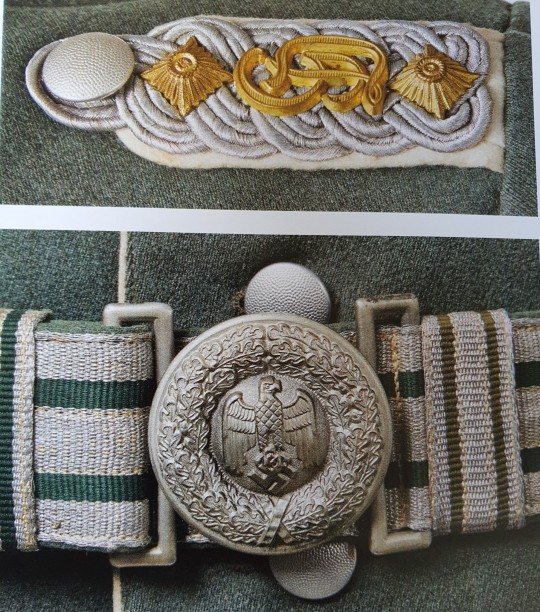#Großdeutschland
Explore tagged Tumblr posts
Text

German grenadiers from the Heer (German army) Großdeutschland division on the streets of the city in the Battle of Rostov-on-Don, July 1942. Excellent view of their personal equipment
#germany#ww2#eastern front#heer#großdeutschland#grossdeutschlabd division#rostov on don#1942#ww2 german army
53 notes
·
View notes
Text

Véhicule blindé de transport de troupes Sd.Kfz. 251 de la Division Großdeutschland (Division d'infanterie mécanisée) – Offensive Kaunas – Opération Bagration – Wilkowischken (aujourd'hui Vilkaviškis) – Lituanie – Août 1944
©Bundesarchiv - Bild 101I-732-0137-14
#WWII#front est#eastern front#opération bagration#operation bagration#offensive kaunas#kaunas offensive#armée allemande#german army#wehrmacht#heer#Panzergrenadier Division Großdeutschland#großdeutschland#wilkowischken#vilkaviškis#lituanie#lithuania#08/1944#1944
11 notes
·
View notes
Text
Some sketches





◆German soldiers in France, 1939. ◆A German patrol captures a Soviet soldier. ◆British soldiers learning bayonet fighting. ◆Großdeutschland Division soldiers. ◆Red Army soldiers in a trench.
82 notes
·
View notes
Text
"Großdeutschland" Division tanks in action against Soviet forces in the late spring of 1944
39 notes
·
View notes
Text
Liste de massacres perpétrés par les allemands en France durant la Seconde Guerre mondiale
Juin 1940
le 7
Airaines (Somme) : exécution sommaire du capitaine N'Tchoréré, officier français refusant d'être séparé de ses camarades officiers blancs, par un feldwebel allemand du 25e régiment d'infanterie allemande.
Beaufort-en-Santerre (Somme) : une trentaine d'hommes du 41e régiment d'infanterie sont capturés, rassemblés dans un champ et passés par les armes.
le 8
Dromesnil (Somme) : l'armée allemande exécute, en violation de la Convention de Genève de 1929, les soldats africains de l'armée française qu'elle avait faits prisonniers. Monument commémoratif dans le village.
le 10
Erquinvillers (Oise) : tirailleurs sénégalais massacrés.
Cressonsacq (Oise) : soldats guinéens massacrés sur le territoire de la commune.
le 11
Cressonsacq : Massacre du bois d'Eraine, les soldats allemands de la 10e Panzerdivision, dont le Panzergrenadier-Division Großdeutschland, massacrent la totalité des Africains de la 4e division d'infanterie coloniale et du 24e régiment de tirailleurs sénégalais faits prisonniers.
le 17
Clamecy (Nièvre) : 44 tirailleurs sénégalais et nord-africains sont fusillés ; l'un d'entre-eux parvient malgré tout à s'enfuir mais est rattrapé et tué à Oisy18.
le 19
Sillé-le-Guillaume (Sarthe) : des soldats allemands assassinent quatorze prisonniers noirs appartenant au 208e régiment d’artillerie légère coloniale19.
le 20
Chasselay (Rhône) : plusieurs dizaines de soldats sénégalais prisonniers (104 tués, 37 blessés, 856 disparus) sont exécutés par la division SS Totenkopf20.
Domptail (Vosges) : 28 à 33 soldats français sont fusillés par des soldats allemands21.
Lentilly (Rhône) : les SS de la division Totenkopf massacrent 18 tirailleurs sénégalais prisonniers.
Champagne-au-Mont-d'Or (Rhône) : Les SS de la division Totenkopf massacrent 12 tirailleurs sénégalais prisonniers.
Éveux (Rhône) : les SS de la 3. SS-Panzer-Division Totenkopf massacrent 13 tirailleurs sénégalais prisonniers.
( source wikipédia)
5 notes
·
View notes
Text

The last desperate defensive positions of the 'Großdeutschland' panzergrenadiers in the Heiligenbeil Pocket, East Prussia 1945
3 notes
·
View notes
Text
Der Tag – Blogschau – Südtirol
Proletennachrichten in Proletensprache vom: 07.12.2024 Derweil werden von der Faschistendiktatur Reichseuropa Wahlen in Rumänien annulliert. Heil dem Führer Großdeutschland! Noch einmal so eine Wahl und wir marschieren ein! HeilNato! Wieder eine Faschistenhure im Spiel. Sklavenarbeit in Brasilien bei VW. Sicher nicht nur da. Wie scheint, wird endlich das Urteil von 1945 vollstreckt. Fehlt…
0 notes
Text
by Stivi
21.09.2024
Gruß von der Ritterkreuzsiedlung Großdeutschland an das USMC .
0 notes
Text
The Battle Of Tuntenhaus
Film: The Battle Of Tuntenhaus (1991)Das “Tuntenhaus” war eines der 1990/1991 in der Mainzer Strasse in Ostberlin besetzen Häuser. Ca 30 schwule Aktivisten versuchten hier herauszufinden, wie Kollektivität im real existierenden Großdeutschland gelebt werden kann. Gestört wurden sie dabei v.a. von den Neo-Nazis, welche die Hausbesetzer*innen der Mainzer Str. und ihre Nachbarn terrorisierten und…

View On WordPress
0 notes
Text
Round 1: Johann Sigismund vs Friedrich Wilhelm IV


Johann Sigismund (r. 1608-1619)
Converted to Calvinism, which led to Prussia being a bi-confessional state.
His marriage to Duchess Anna of Prussia officially created the state of Brandenburg-Prussia. Though said partnership, he also acquired the territory of Juelich-Kleve.
As his reign continued, his alcoholism consumed him. Schiller notes a particular incident involved him punching the ear of a prospective step son, ruining the chance for marriage. As his heath declined, he was described as halfway between life and death.
Friedrich Wilhelm IV (r.1840-1861)
A staunch romanticist, Friedrich Wilhelm was responsible for some of the most magnificent buildings in Germany. The Orangery Palace in Potsdam, the Old National Gallery in Berlin, and the renovation of the Hohenzollern Castle were all constructed during his reign.
His reign was interrupted by the terror of the People's Spring. Although the king initially conceded to the revolutionaries in Berlin, once things were settled, he swiftly crushed the uprising.
Perhaps his most famous statement is his refusal of "the crown from the gutter" offered to him by the Frankfurt Parliament. The King did initially favor a Großdeutschland solution with a Habsburg at the helm, though luckily he soon came around to the superior idea of a Prussian led union. (Note: May be too divisive - T)
We here at the Kreuzzeitung must pay a special tribute to Friedrich Wilhelm IV. After the Revolutions of 1848, he assembled a group of conservative noblemen to help combat any further revolutionary fervor. It was that group that founded this esteemed paper, so for that, we thank him.
#its clear that i have more opinions on one of these men than the other#staffer leopold#hohenzollern bracket#johann sigismund#friedrich wilhelm iv#round one
0 notes
Text
Beware⚠️
198 – a combination of 19 and 8 or S and H, meaning "Sieg Heil."
1919 – represents SS, short for “Schutzstaffel”, probably the most infamous paramilitary organization in the Third Reich. It was responsible for some of the most heinous crimes against humanity in World War II.
74 – GD or “Großdeutschland/ Großdeutsches Reich” refers to the 19th-century idea of a German state that includes Austria, also an unofficial term for Germany after the annex of Austria in 1938. "Großdeutsches Reich" was the official state designation of the Third Reich in the last two years of the war.
28 – BH is an abridgement for "Blood & Honor," a German Neo-Nazi network that nowadays is prohibited.
444 – yet another representation of letters, DDD stands for "Deutschland den Deutschen (Germany for the Germans)". Other theories point out that it also might refer to the Four-Column-Concept of the far-right party NPD (National Democratic Party of Germany). This concept is the NPD’s strategy for winning over political power in Germany.
14 or 14 words – is a numeric combination used by Nazis all over the world, but especially in the USA and by some German groups. The exact 14 words of this code are: We must secure the existence of our people and a future for white children. A statement coined by deceased American white supremacist David Eden Lane. “Our people,” of course excludes everyone who is not deemed “white.”
Other common numeric dogwhistles:
88 - Representing of "Heil Hitler" and often paired up with 14, 99% of the time you see specifically 1488 it's a dogwhistle
1350 - the racist statistics meme in regards to incarceration rates of African-Americans










#nazisploitation#sacha baron cohen accuses tiktok of ‘biggest antisemitism movement since the nazis’#nazis#nazigate#nazi#neofascism#codes#code#symbols#symbology#random facts#fun facts#factsnfunnypics#jack facts#facts#fact check#the fact music awards 2023#fact#ausgov#politas#auspol#tasgov#taspol#australia#fuck neoliberals#neoliberal capitalism#anthony albanese#albanese government#antinazi#this has been a psa
0 notes
Text

Major Walter Pössl, Kommandeur I./PzRgt "Großdeutschland" with his Knights Cross (RK) around his neck, Russia, 1943. Also his Iron Cross 1st Class (EK1) on lower left chest with his wound badge (Vervundetenabzeichen) underneath. On his right chest is his German Cross in Gold (DKIG). On his right sleeve you can just see his cuff title Großdeutschland (Greater Germany). Only certain elite Heer (Army) and Waffen-SS units were allowed to wear a cuff title featuring the name of their regiment or division
#germany#ww2#heer#german army#walter pössl#knights cross#grossdeutschlabd division#Großdeutschland#eastern front#1943
19 notes
·
View notes
Video
youtube
Germany's Most Fierce Division: Großdeutschland | "From Sector to Sector...
0 notes
Photo

Soldats de la Division d'infanterie mécanisée Großdeutschland (Panzergrenadier Division Großdeutschland) dans la ville de Rjev à l'ouest de Moscou durant la contre-offensive soviétique - 1942
#WWII#Front de l'Est#1941-1942 La contre-offensive soviétique#Batailles de Rjev#Wehrmacht#Heer#Division d'infanterie mécanisée Großdeutschland#Panzergrenadier Division Großdeutschland#Großdeutschland#Rjev#Union soviétique#1942
5 notes
·
View notes
Text

Tigers from Panzergrenadier Division "Großdeutschland" near Iași, Romania, April 1944.
41 notes
·
View notes
Text



Waffenrock Offizier Großdeutschland Division.
7 notes
·
View notes